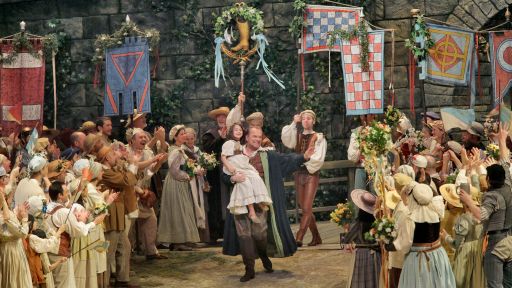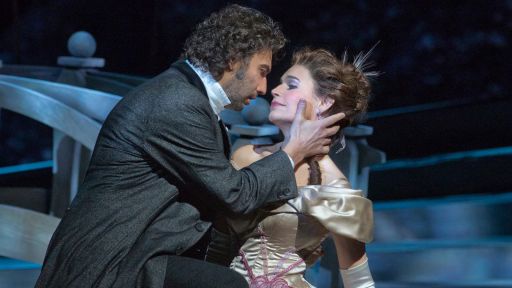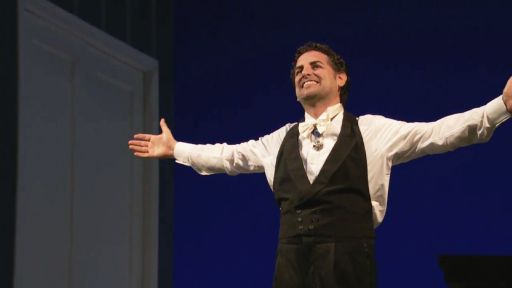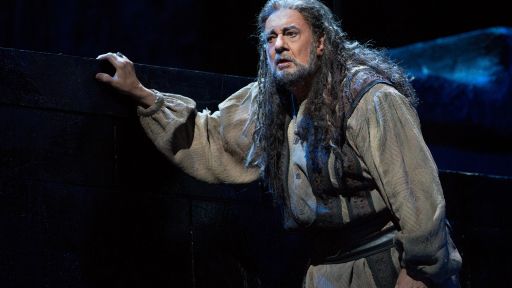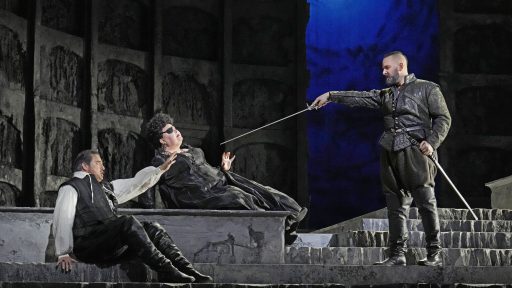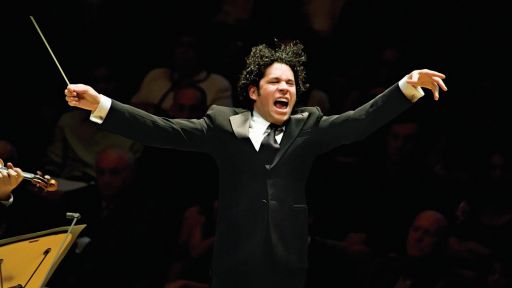The Enchanted Island, a world premiere work that combines Baroque music with a new, English-language libretto featuring characters from Shakespeare’s The Tempest and A Midsummer Night’s Dream, and a starry cast including Danielle de Niese, Joyce DiDonato, David Daniels, Plácido Domingo, and Luca Pisaroni, will air on THIRTEEN’s Great Performances at the Met Friday, May 18 at 9 p.m. on PBS (check local listings). In New York, THIRTEEN will air the program at the same time with an encore presentation Sunday, May 20 at 12:30 p.m.
The program was originally seen live in movie theaters on January 21 as part of the groundbreaking The Met: Live in HD series, which transmits live performances to more than 1700 movie theaters and performing arts centers in 54 countries around the world.
Great Performances at the Metis a presentation of THIRTEEN for WNET, one of America’s most prolific and respected public media providers. For nearly 50 years, WNET has been producing and broadcasting national and local arts programming to the New York community.
Devised and written by the acclaimed British theater artist Jeremy Sams in his Met debut, The Enchanted Island is conducted by renowned Baroque specialist William Christie and seen in a fantastical production by director Phelim McDermott and scenic designer Julian Crouch that blends 18th-century theatrical techniques with advanced video projection designs.
The Enchanted Islandis a contemporary take on the 18th-century tradition of operatic “pasticcios” (pastiches), in which new librettos were combined with music from various compositions to create entirely new theatrical pieces. The tradition was particularly popular in London, where Handel was a prominent practitioner. The score for The Enchanted Islandcomprises selections from a variety of Baroque operas, cantatas, and oratorios, many of which are rarely performed in contemporary opera houses.
DiDonato stars as the sorceress Sycorax and Daniels is her supernatural foe, the sorcerer Prospero; Domingo is Neptune, god of the seas; de Niese is the air spirit Ariel; Lisette Oropesa is Prospero’s daughter Miranda; Anthony Roth Costanzo is the shipwrecked prince Ferdinand;and Pisaroni is Sycorax’s monstrous son Caliban.
The score includes music from many Handel works, including operas (e.g. Alcina, Ariodante, Partenope, and Semele, Tamerlano, and Teseo); oratorios (Hercules and Judas Maccabaeus); and cantatas (e.g. “Tanti strali al sen mi scocchi” and “Notte placida e cheta”); and more. The other works represented in The Enchanted Island are by Vivaldi, Rameau, Ferrandini, Campra, Purcell, Rebel, and Leclair.
Sams, a noted stage director, writer, translator, composer, and lyricist, has created an English-language libretto for The Enchanted Island that combines the plots of two Shakespeare plays. In Sams’s story, the bitter supernatural war between The Tempest’s Prospero and his nemesis, the sorceress Sycorax, is interrupted by a quartet of unexpected island visitors: the four lovers from A Midsummer Night’s Dream, whose honeymoon cruise has ended in a shipwreck. The ensuing conflicts and romantic entanglements also involve Prospero’s daughter Miranda, Sycorax’s grotesque son Caliban, the shipwrecked prince Ferdinand, the air spirit Ariel, and Neptune, king of the undersea world.
Renowned Baroque specialist Christie made his Met debut last season leading Mozart’s Così fan tutte. His adventurous explorations into the Baroque repertory, particularly with his ensemble Les Arts Florissants, have earned him an international reputation as a consummate musician and historian.
DiDonato’s most recent Met appearances were as the Composer in last season’s revival of Strauss’s Ariadne auf Naxos and as Isolier in the Met premiere of Le Comte Ory. Daniels’s Met starring roles have included Orfeo in the new production of Orfeo ed Euridice (2007 and 2011), Bertarido in the Met premiere of Handel’s Rodelinda (2004), both Sesto and the title character in Handel’s Giulio Cesare, and Oberon in Britten’s A Midsummer Night’s Dream. Since his debut in 1968, Domingo has sung more than 600 Met performances in an ever-expanding repertory.
De Niese, a frequent collaborator with Maestro Christie, made her Met debut as Barbarina in Le Nozze di Figaro in 1999. Earlier this season, Pisaroni sang Leporello in the new production of Mozart’s Don Giovanni. Oropesa’s Met appearances have included Lisette in the new production of Puccini’s La Rondine (2008), Susanna in Le Nozze di Figaro, Amore in Orfeo ed Euridice, and the Rhinemaiden Woglinde in the 2010 new production of Wagner’s Das Rheingold. Costanzo, a 2009 National Council Grand Finals winner, makes his Met debut this season as Unulfo in Rodelinda.
The four Midsummer lovers are sung by Layla Claire (Helena), Elizabeth DeShong (Hermia), Paul Appleby (Demetrius), and Elliot Madore (Lysander, in his Met debut).
The New York Times dubbed the work, at its premiere, “fanciful, clever, and touching,” while Associated Press found it “irresistibly entertaining…with enough fizz to send a dozen champagne corks popping.”
Soprano Deborah Voigt hosts. Barbara Willis Sweete directs the telecast.
Great Performancesis funded by Vivian Milstein, the Philip and Janice Levin Foundation, and Annaliese Soros. Corporate support for Great Performances at the Metis provided by Toll Brothers, America’s luxury home builder®.
Visit Great Performances online at pbs-wnet-preprod.digi-producers.pbs.org/gperf for additional information on this and other Great Performances programs.
For the Met, Mia Bongiovanni and Elena Park are Supervising Producers, and Louisa Briccetti and Victoria Warivonchik are Producers. Peter Gelb is Executive Producer. For Great Performances, Bill O’Donnell is Series Producer; David Horn is Executive Producer.

